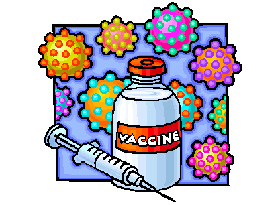Detection of genes that control the body of vaccine responses
Recently, Australian scientists have identified a gene called "Dock8" that controls the body's response to the vaccine.
This is an important finding contributing to increasing vaccination effectiveness as well as improving treatment after transplantation, enhancing autoimmune and anti-allergy.
Clinical immunologist at the University of Canberra, Dr. Katrina Randall, said previous studies have shown that vaccination works to protect the body against disease, but its mechanism of action is Which is still unclear.
 Some people have problems when the body does not respond appropriately to the vaccine. Therefore, scientists have conducted research on genetically modified mice.
Some people have problems when the body does not respond appropriately to the vaccine. Therefore, scientists have conducted research on genetically modified mice.
The results showed that these mice responded very well after first vaccination and produced antibodies. However, a few weeks later, when the test was done, the antibodies completely disappeared. After the study, scientists discovered the "Dock8" gene mutation that caused the phenomenon.
Dr. Randall said that in normal mice, the vaccine will interact with white blood cells called B cells (immune cells) to create antibodies to develop into a protective army.
However, the genetic modification "Dock8" prevented the interaction process.
Experts say the study will help scientists study and prepare more effective vaccines, especially for people who cannot get an immune response to vaccines.
- Detection of genes that can control HIV
- Detection of genes that control skin formation
- Detection of genes that control heart rate
- Create a vaccine for meningitis
- Detecting the region of genes that control domestication in animals
- Genetically modified after a sleepless night
- Detects genes that affect the body's fat distribution
- 'Gene therapy' Near or far?
- The vaccine kills itself in the body
- Breast cancer cells can resist the immune system
- Detection of genes against bacteria from mammals in Australia
- Conduct a trial on human malaria vaccine
 Why do potatoes have eyes?
Why do potatoes have eyes? 'Tragedy' the world's largest carnivorous life: Death becomes ... public toilet
'Tragedy' the world's largest carnivorous life: Death becomes ... public toilet Tomatoes were once considered 'poisonous' for 200 years
Tomatoes were once considered 'poisonous' for 200 years Detecting microscopic parasites on human face
Detecting microscopic parasites on human face